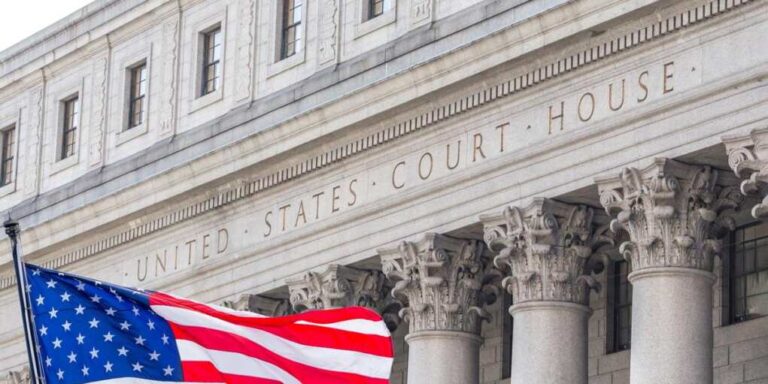
President Donald Trump’s battle to end birthright citizenship suffered a significant legal defeat Wednesday when the 9th U.S. Circuit Court of Appeals ruled his executive order unconstitutional. The decision marks the second major legal setback for the policy, which would have denied citizenship to children born in the U.S. to illegal or temporary residents.
In a 2-1 vote, the liberal San Francisco-based appeals court affirmed an earlier ruling by U.S. District Judge John C. Coughenour that blocked nationwide enforcement of Trump’s order. Judges Michael Hawkins and Ronald Gould—both appointed by Bill Clinton—declared the move a violation of the 14th Amendment.
“The district court correctly concluded that the Executive Order’s proposed interpretation, denying citizenship to many persons born in the United States, is unconstitutional,” the majority wrote. “We fully agree.”
The lone dissent came from Judge Patrick Bumatay, a Trump appointee. He didn’t rule on whether the EO was constitutional but argued that the states challenging it didn’t have legal standing to sue the Trump administration.
The executive order at the center of the fight aimed to stop what critics call “birth tourism” and “anchor baby” abuse of U.S. citizenship law. It would have denied citizenship to children born to non-citizen parents who are in the country illegally or temporarily—unless one parent had lawful permanent status.
Despite a recent Supreme Court ruling that narrowed the ability of lower courts to issue nationwide injunctions, the 9th Circuit claimed an exception applied in this case. They argued that the ruling needed to cover the entire country to avoid a patchwork of laws in different states regarding who qualifies for U.S. citizenship at birth.
“We conclude that the district court did not abuse its discretion in issuing a universal injunction,” the panel wrote. “This was necessary to give the States complete relief.”
The ruling reignites the longstanding constitutional debate over the meaning of the 14th Amendment’s Citizenship Clause. The clause declares that “all persons born or naturalized in the United States, and subject to the jurisdiction thereof,” are U.S. citizens.
Trump’s legal team argues that “subject to the jurisdiction thereof” was never intended to include those in the country unlawfully or temporarily—especially in an era where mass migration and overstayed visas have become tools to obtain automatic citizenship for children. DOJ lawyers maintain the clause was meant to apply only to people with lawful, enduring ties to the country—not every foreign visitor who gives birth while on U.S. soil.
In contrast, the courts—thus far—have largely clung to an expansive interpretation of the clause, effectively turning U.S. hospitals into a global gateway for birthright citizenship.
The Trump administration is now facing at least nine active lawsuits over the executive order. While this particular case represents a loss in one of the most liberal courts in the country, Trump allies say the fight is far from over. The 9th Circuit’s ruling sets the stage for a potential Supreme Court showdown that could finally clarify what “subject to the jurisdiction” truly means.
Outside the courts, the political battle continues. Immigration hardliners argue the Founders never intended for children of illegal aliens to automatically become citizens. They also point to the financial burden on U.S. taxpayers, since those children often gain access to welfare, education, and healthcare systems.
Trump has made immigration enforcement a cornerstone of his second-term agenda—and this ruling may only strengthen his resolve. His supporters are already calling on the Supreme Court to fast-track the case and put an end to what they see as a constitutional misinterpretation that encourages lawbreaking.
For now, though, the order remains blocked. The anchor baby loophole lives on.






